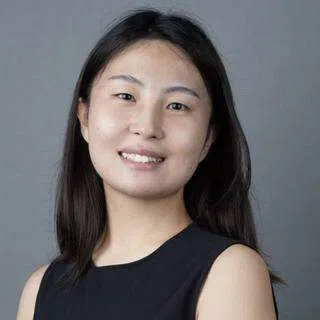Skylink founder Wesley Shen’s unstoppable quest to get rich
Wesley Shen grew up in a poor family on a farm in Guilin, China, but managed to rise above his circumstances and set up a listed company. Lianhe Zaobao journalist Li Yaning finds out what drives him.
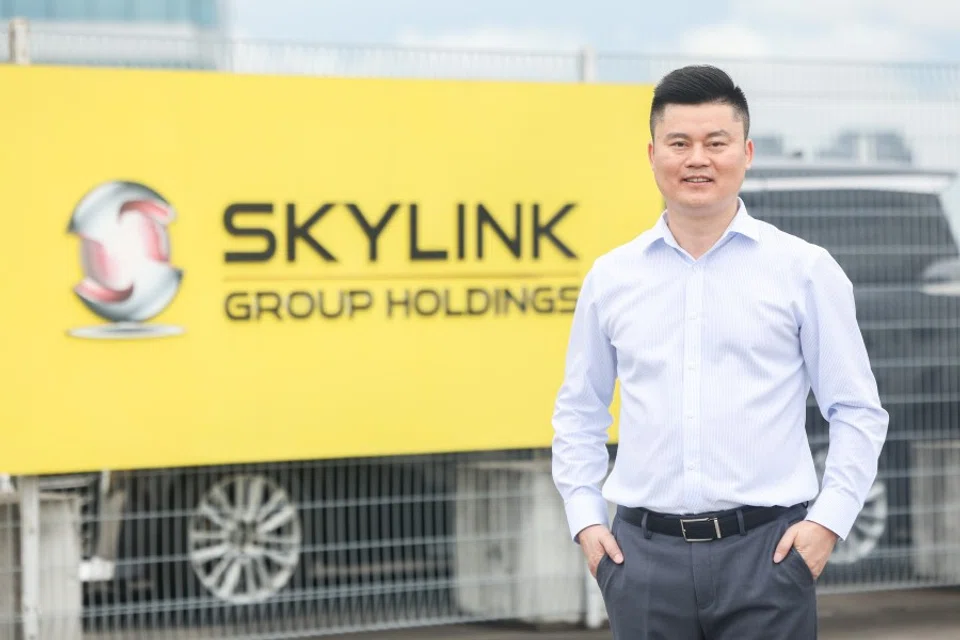
Before the interview even begins, Wesley Shen flashes a quick smile and offers to introduce himself. “I’ve had a lot of practice lately,” he says.
Over the past six months, he’s told his story to investors more times than he can count. It always starts the same way — with his childhood on a rice farm. His family grew paddy rice, transplanting seedlings by hand, feeding themselves with the harvest and using the brown rice for the chickens, ducks and pigs. Whatever was left, they sold for just enough to buy food, clothes and pay school fees.
A good story
For 43 years, he has been on the move — from village to town, from county to city, from the Chinese capital of Beijing to overseas. He has worked in the fields, taken exams, suspended his studies, studied abroad, held various jobs, resigned and started businesses. Today, his group’s Skylink APAC is listed on the Singapore Exchange.
For an entrepreneur of his age, such an experience is far from ordinary, and it is a story that has struck a chord with some investors. Initially, Shen’s fundraising target for the listing was S$8 million (US$6.2 million), but after a roadshow, he received investment interest totalling more than S$12 million. In the end, he decided to accept S$9.2 million to expand his business.
Shen founded Skylink in 2016, by which time he had already lived in Singapore for 13 years. After graduating from a polytechnic, he worked for more than five years as an aircraft maintenance apprentice and engineer, and then spent another four years selling trucks.
Today, Skylink ranks as the third largest commercial vehicle leasing company in Singapore, with a fleet of over 1,200 vehicles and around S$66 million in auto loans under management. Last year, it was named one of the Promising Brands at the 2024 Singapore Prestige Brand Awards.
“At that time, studying abroad also seemed out of reach. I couldn’t even afford domestic tuition fees in China, how could I dare to dream of going overseas?” — Wesley Shen, Founder, Skylink
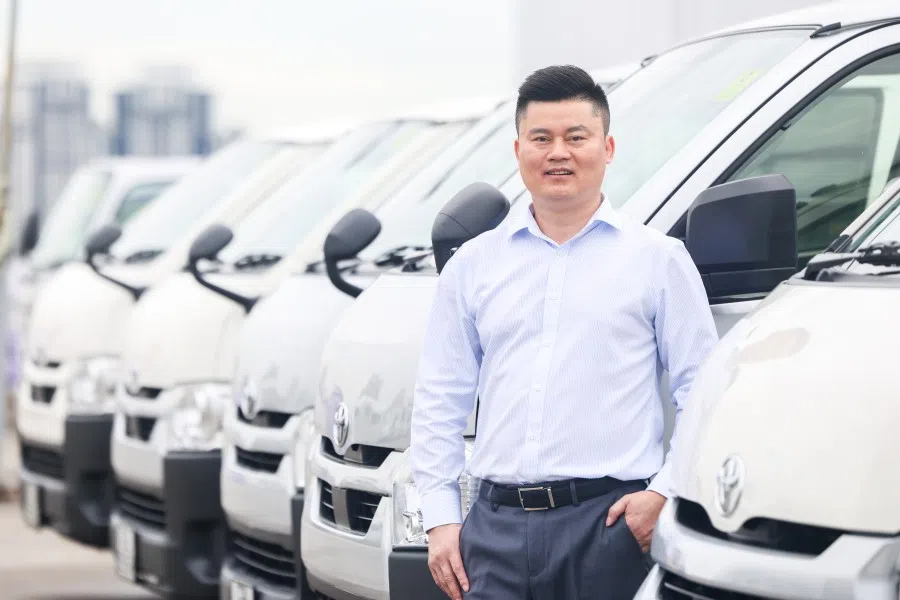
Recently, Skylink APAC completed its reverse takeover of Sincap Group.
Over the past year, with his sights set on going public, Shen has met frequently with financial advisors, sought sponsors, persuaded investors, completed compliance procedures, conducted internal and external financial audits, risk control reviews, valuations, due diligence, and so on.
Has the process been more exhilarating or exhausting? “Both,” he says with a laugh. But the biggest takeaway? That many things — so long as you’re willing to learn and try — turn out not to be impossible after all.
Looking back on the journey, he’s reminded of a moment more than 20 years ago, when he walked into an overseas study agency, not even knowing what a passport was, just to find out if studying abroad might be possible.
“At that time, studying abroad also seemed out of reach. I couldn’t even afford domestic tuition fees in China, how could I dare to dream of going overseas?
“But once you ask, you realise there’s always a chance.” That is his experience in a nutshell.
The family had an ox for ploughing the fields, and he would lead it by a rope to graze on the hillside, always careful to keep it from eating neighbours’ vegetables or stepping into their rice paddies.
Son of rice farmers worked to earn money for school
Shen was born in Guilin, Guangxi, in 1982. To him, Guilin was not the famed tourist destination of “the most beautiful scenery under heaven”, but rather a home of endless rice fields and difficult livelihoods.
About 15 kilometres from Guilin city lies a county town; 25 kilometres beyond that lies a township, and five kilometres further sits Shen’s village.
He recalls that from the age of four, he began helping with household chores — picking vegetable leaves, weeding, feeding chickens, ducks, and pigs. The family had an ox for ploughing the fields, and he would lead it by a rope to graze on the hillside, always careful to keep it from eating neighbours’ vegetables or stepping into their rice paddies.
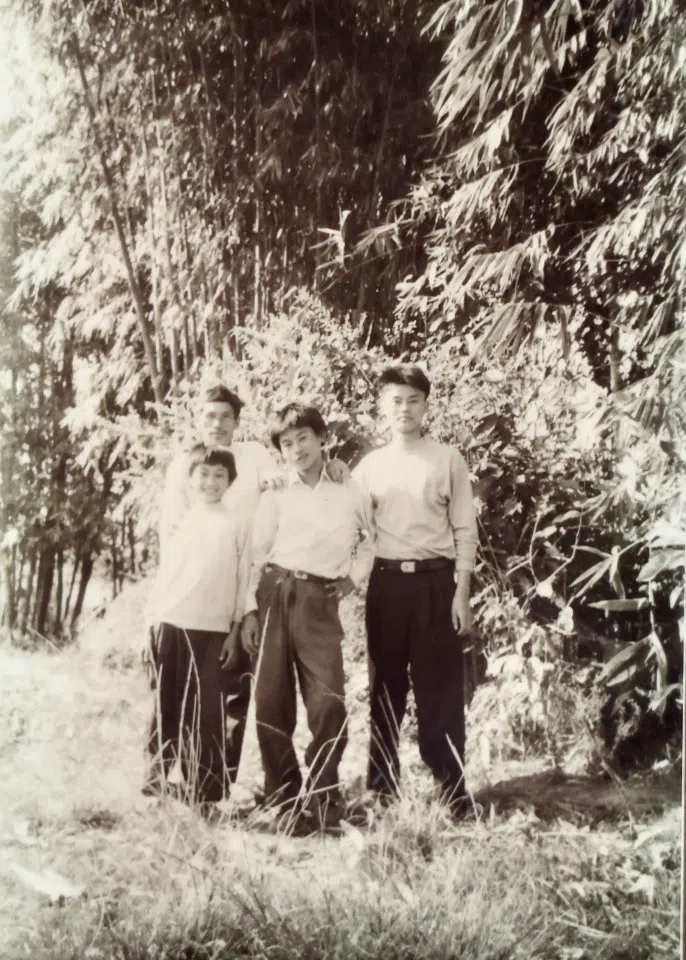
At the age of seven, Shen entered the village primary school, knowing only how to count from 1 to 10 — something hard to imagine today.
Shen has two younger brothers. With the family living in poverty, their mother — who herself had only completed primary school — would remind them from an early age: while their origins could not be changed, their destiny could be altered through knowledge.
In 2001, after graduating from secondary school in the county town, Shen wanted to see the world. He applied to Changchun University, nearly 3,000 kilometres away in China’s northeast.
But the moment he opened his mouth, the child’s mother cut him off: “You can’t even speak proper Mandarin, and you want to teach English and math? What if my child ends up like you?”
Among all his memories from university, one scene remains especially vivid: on a snowy night with temperatures at minus 20 degrees, a 20-year-old Shen stood alone on the empty sports field, practising vocal drills. Book in hand, he followed instructions on standard pronunciation, carefully training his tongue, teeth, lips and palate to produce crisp plosive and fricative sounds — his face stiff from the cold, breath curling in the freezing air.
He recalls being stung by an experience early on. Not long after starting university, he applied for a part-time tutoring job to help cover living expenses. But the moment he opened his mouth, the child’s mother cut him off: “You can’t even speak proper Mandarin, and you want to teach English and math? What if my child ends up like you?”
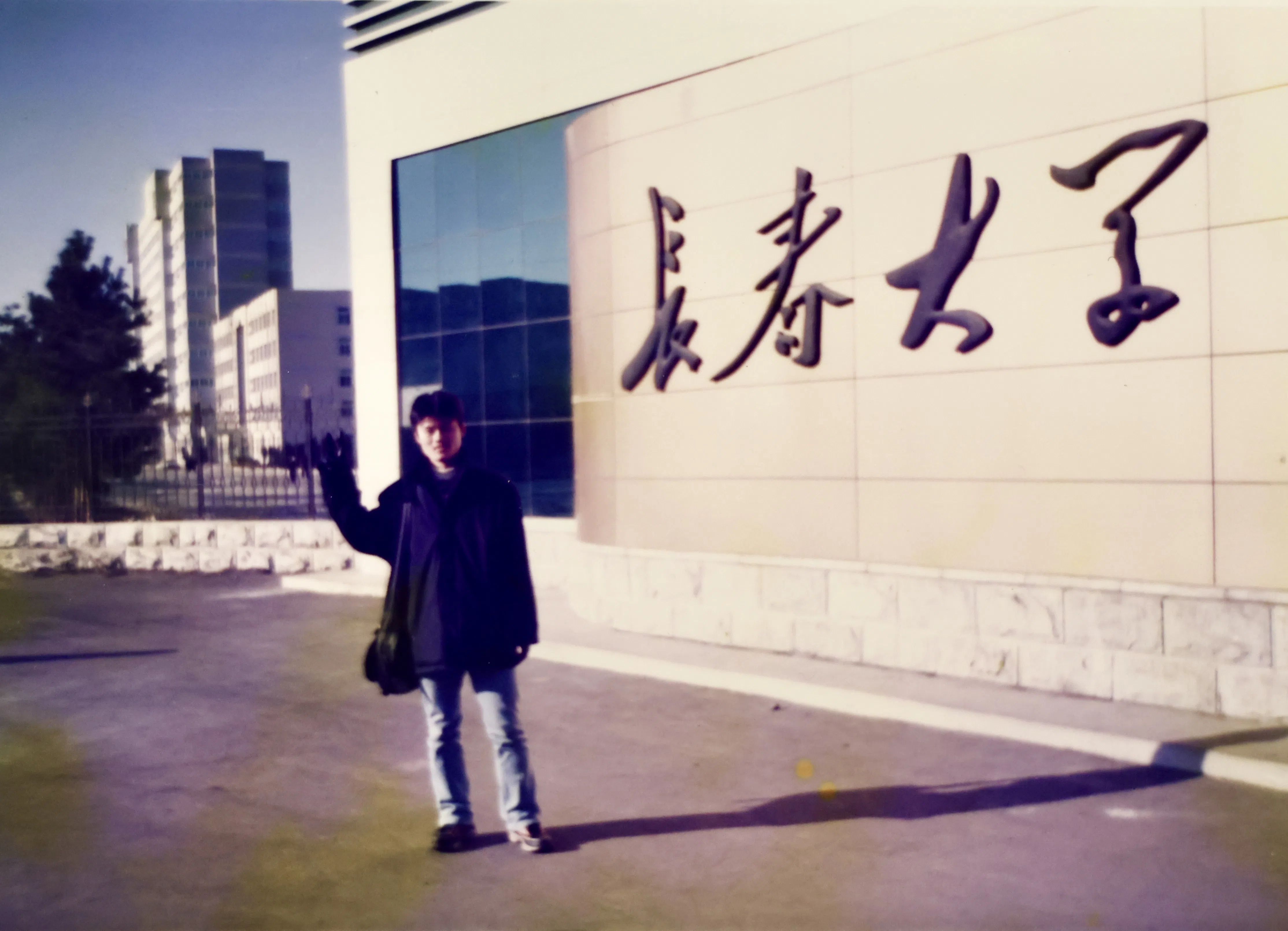
For Shen, who had barely ever left his home county, it was the first time his pride had taken such a hit. Determined to improve, he bought two pronunciation books — one for Chinese pinyin and another for English — and threw himself into daily practice. Eventually, his efforts paid off: he landed his first tutoring job.
Now, looking back from sunny Singapore, Shen can barely remember what fuelled that fierce determination during those freezing nights.
“Maybe it was competitiveness,” he muses. “When I was rejected, I would ask myself: if others can do it, why not me?”
In the second winter away from home, he once again felt the northern cold, this time in Beijing.
After his freshman year, Shen had not been able to save enough from tutoring to cover his second-year tuition. Not wanting to burden his family, he decided to take a year off and moved alone to Beijing to do odd jobs and save up.
As winter set in, he rented a tiny attic room in a Beijing hutong. The wind rattled the windowpanes, and with only one decent winter coat, he had to stay indoors whenever it got dirty — waiting for it to dry after washing before he could go out again.
“During those months in Beijing, I went through a lot of inner struggle. I had this burning desire: one day I want to succeed, to create wealth, to become like those people. But for now, I had to focus on simply surviving.” — Shen
In Beijing, he first worked as a restaurant waiter, then as an air-conditioning and furniture salesman. He even tried selling trinkets to tourists. But despite all the hustle, he did not make much money. Exhausted, he would sometimes board a bus and ride aimlessly around the city, where he saw delicacies served in private dining rooms, and big-spending urbanites outside nightclubs.
“During those months in Beijing, I went through a lot of inner struggle. I had this burning desire: one day I want to succeed, to create wealth, to become like those people. But for now, I had to focus on simply surviving.”
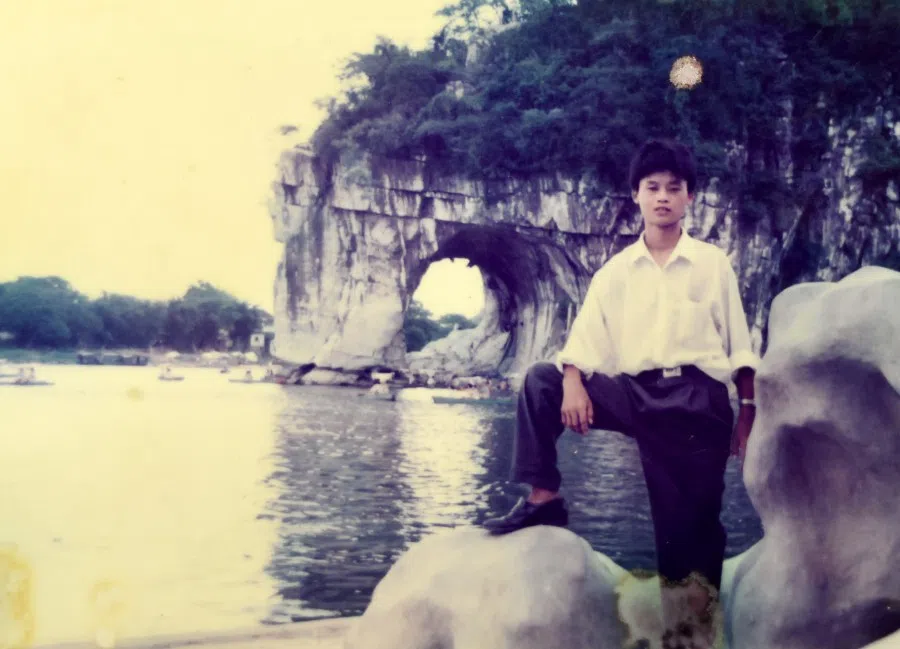
By chance, Shen stumbled upon ads about studying abroad — and it felt like a glimpse of a turning point in his life. After researching different countries, he made the tough decision to withdraw from university and head to Singapore to continue his studies.
He said: “My upbringing and the setbacks I faced in Beijing showed me just how hard it is to climb upward or break through limits. I didn’t know if Singapore would be any different, but for me, the unknown was an opportunity.”
The important thing was that Singapore’s student visas allowed part-time work, which gave him confidence that he could pay his own tuition.
In 2003, Shen went home to tell his parents he had decided to drop out. With support from relatives and friends, he managed to gather 50,000 RMB (about US$7,000) and enrolled at Temasek Polytechnic to study mechatronics engineering.
During his three years of study, apart from attending classes, Shen worked “like crazy”, first at the Shangri-La banquet hall, and then at a Japanese restaurant at Clarke Quay for S$6 an hour.
From aircraft engineer to salesman
After graduation, Shen worked at SIA Engineering, rising from apprentice to aircraft maintenance engineer. In his first year, he received a bonus worth nearly seven months’ salary — the first time he felt that “life was finally starting to take shape”.
In 2011, as he approached his thirties, Shen once again chose to “step away.”
The reason may sound impulsive. “My colleagues were talking about investments and financial planning, about how to become millionaires. I did a quick mental calculation: if I saved thirty to forty thousand dollars a year, it would take me 30 years to become a millionaire.”
Often, he would stand by the roadside or on pedestrian bridges, taking photos of passing trucks with his phone, noting down the company names printed on them. Later at home, he would search for the addresses and phone numbers and approach each company one by one.
That thought hit him hard. “Was I really okay with just walking this steady path for the rest of my life? That’s when I started re-examining myself.”
He quit his engineering job and turned to sales, but he did not know whether he had any talent for it. “I just thought, if I really wanted to be in control, sales offered unlimited room to grow.”
After leaving engineering, Shen joined Toyota’s commercial vehicle unit Hino, selling heavy-duty trucks. At that time, Hino had only a small market share locally, and for the first four months, Shen didn’t sell a single truck.

He recalls the hard times — knocking on factory doors in the scorching sun and pouring rain to hand out flyers. Often, he would stand by the roadside or on pedestrian bridges, taking photos of passing trucks with his phone, noting down the company names printed on them. Later at home, he would search for the addresses and phone numbers and approach each company one by one.
“You keep sowing seeds in every way possible, and one day, the phone slowly starts ringing.”
A year later, his sales income finally surpassed what he had earned as an engineer.
After four years of selling heavy-duty trucks, Shen had become adept at client prospecting, negotiations, closing deals, and after-sales service, while also building up a substantial network of customers and brand resources. He felt it was time to start his own business.
A one-man show in a 200-square-foot room
In 2016, Shen founded Skylink. To call it a “company” was almost an exaggeration: it was a 200-square-foot room with just two desks and a printer. He had no employees. From finding customers and negotiating deals, to paperwork, accounting, and coordinating vehicle repairs and modifications, he handled everything himself.
In 2017, Shen hired nearly ten employees and rented a proper office on Toh Guan East Road, where he held a ribbon-cutting ceremony to mark the opening.
In 2018, the first major test arrived. With the economy weakening and competition intensifying, vehicle sales plummeted.
Shen believed that in a downturn, people would lean more toward renting. So he purchased more than 30 vehicles for rental and also applied for bank credit to start an auto financing business.
By 2019, as vehicle sales improved, the rental fleet continued to expand, and Shen set up a repair workshop. Skylink began to take shape as an ecosystem centred around commercial vehicles.
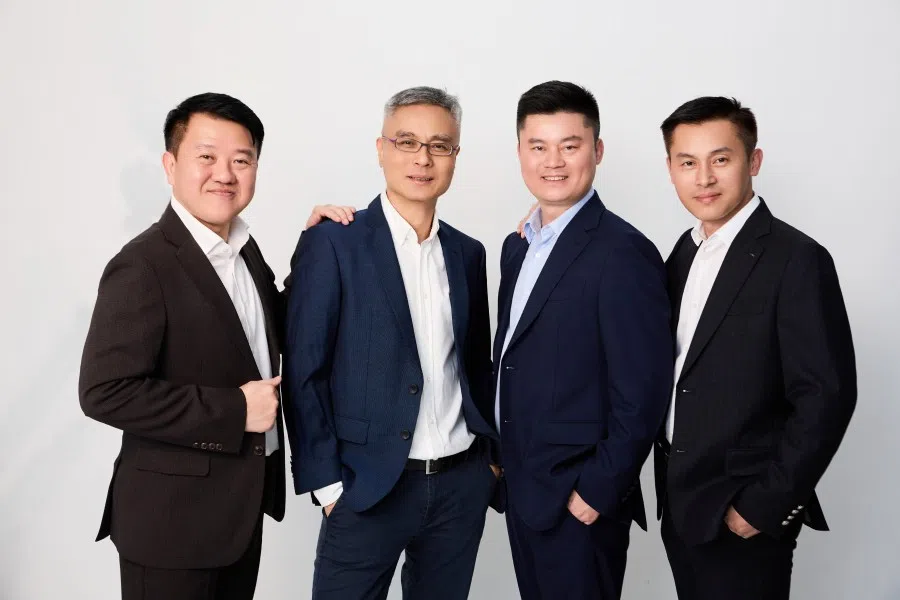
In 2020, when the pandemic hit and industries faced huge uncertainty, Shen made a bold pivot: he shifted the company’s focus to leasing. Over the next two years, with bank loans, he expanded the fleet from 100 to 600 vehicles.
“Many people said I was acting like a madman,” he recalls.
But Shen had his reasons. Certificate of Entitlement (COE) prices had fallen from nearly S$60,000 in 2017 to around S$20,000 in 2020, but given his years of experience in the truck industry, he was convinced the dip was temporary, and that it was the perfect opportunity to expand.
To pursue higher growth, raise capital and gain more resources, Shen decided to list Skylink APAC, with its three business segments: commercial vehicle leasing, auto financing and automotive engineering.
Though running a “small company”, Shen was unafraid of leverage. In 2023, when COE prices peaked, he sold off half the fleet, cashed out, and mortgaged the assets to the bank. Using that leverage, he went on to acquire three fleets in just six months, pushing his fleet size to record highs.
He also had moments when the company hung by a thread. In 2019, with more than 100 vehicles, nearly one-third were rented by a single client. When that client failed to pay on time, the cash flow nearly collapsed. From that experience, Shen learned the importance of risk management.
To pursue higher growth, raise capital and gain more resources, Shen decided to list Skylink APAC, with its three business segments: commercial vehicle leasing, auto financing and automotive engineering.
In FY2025, Skylink APAC’s revenue rose 76% year-on-year to S$26.37 million, while net profit grew 35% to S$2.74 million.
Constantly learning in order to transform
When Shen first mentioned the idea of listing to the company’s chief financial officer, Leonard Teh, the latter’s response was cold. Only later did Shen realise it was a test of his resolve. Listing is no small battle — without determination, it would never succeed.
Shen admires Jack Ma and Elon Musk: men with distinctive personalities, ambition, the courage to take risks, and sometimes seemingly wild ideas.
Two books had a profound influence on him: a biography of Jack Ma and The Greatest Salesman in the World.
Looking back on the turning points of the past two decades, it seems that his success was built on taking “the road less travelled”. However, the tireless effort behind each step should not be overlooked.
He believes the key qualities for success are diligence and discipline, as well as continuous learning and transformation.
Born into poverty, every step of his journey seemed aimed simply at survival, and without realising it, he ended up building a listed company.
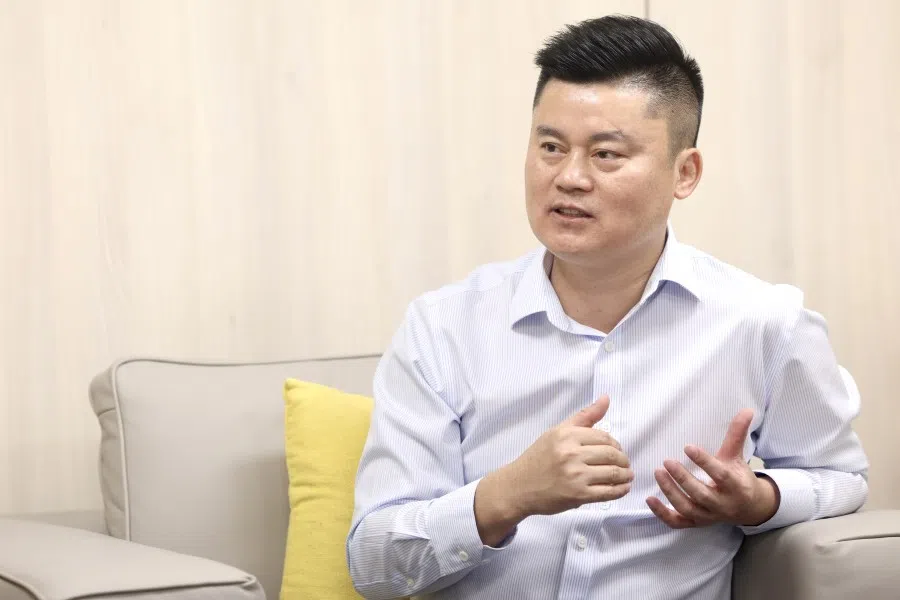
Although he did not receive an elite education in his youth, Shen began learning how to run a company after starting his business. From 2019 to 2022, he pursued an Executive MBA at Singapore Management University. In 2024, aligning with the company’s growth strategy, he enrolled in an mergers and acquisitions programme at Fudan University.
He says he recently came across an interesting term — “incidental entrepreneurship”, which is exactly what happened to him. Born into poverty, every step of his journey seemed aimed simply at survival, and without realising it, he ended up building a listed company.
Of course, behind the “incidental” lies a strong sense of inevitability. He does not shy away from admitting his craving for wealth, something he says was etched into his bones from birth. Reflecting on himself, he explains that poverty gave him an inferiority complex, but combined with a fierce sense of pride, it made him put on a façade of arrogance, as if nothing could touch him. That later transformed into genuine confidence. “There’s just this force inside me — whatever happens, I tell myself: I can handle it.”
As for his humble origins, he sees them neither as fortune nor misfortune. “Since I’m here, I’ll make peace with it,” he says. Dressed in a suit, lifting a delicate teacup, he animatedly recounts his childhood: the small river flowing past his house where you could scoop up loaches from the mud, the little fish in the ponds, the frogs in the fields, and the four-legged lizards he feared most as a boy.
He says this is his sentimental side. He recalls lying on the hillside as a cowherd, looking up at airplanes flying overhead — so distant they looked as small as birds — and being unable to imagine what they were really like.
As the interview wraps up, Shen shares a childhood anecdote. In third grade, he suddenly told his mother he wanted to change his Chinese name to Shen Wende. Following his repeated insistence, his mother brought him to register it. “I’ve always had a big ego,” he admits. Strangely enough, after that, his grades improved rapidly. The gears of fate had begun to turn.
This article was first published in Lianhe Zaobao as “世凯联创办人沈文德:桂林穷家儿喂猪放牛 从最低起点一路逆袭”.
